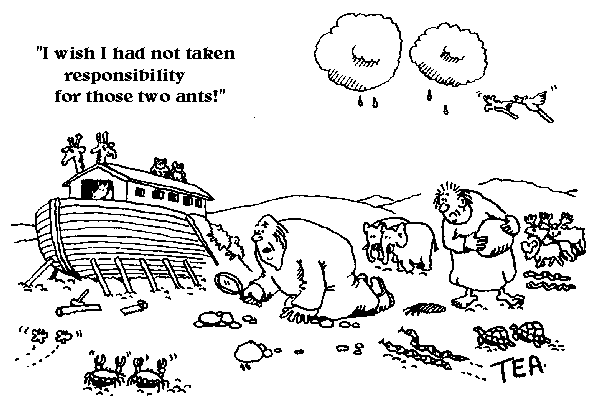In the contemporary discourse surrounding spirituality, a pervasive observation emerges: traditional religions, despite their profound historical significance and potential for personal enrichment, can sometimes pose obstacles to attaining true spiritual essence. This contention invites a layered examination of the intricate interplay between doctrinal adherence and authentic spiritual experience, particularly through the lens of Bahá’í teachings, which advocate for the unity of mankind transcending sectarian divisions.
The Bahá’í Faith emphasizes the primacy of spiritual development over rigid institutional frameworks. At its core, the Bahá’í understanding of religion is that it should be a catalyst for personal and collective growth, rather than a limitation. By placing humanity’s spiritual evolution at the forefront, Bahá’í teachings encourage individuals to delve beyond dogma and engage with the inherent nobility of the human spirit.
One prominent barrier that often arises within traditional religions is the phenomenon of exclusivity. Many faith communities, with a vested interest in preserving their unique tenets, can unwittingly cultivate an atmosphere that discourages exploration and dialogue. This exclusivity not only fosters division among different faiths but can also engender feelings of superiority among adherents. In contrast, the Bahá’í viewpoint posits that all major religions represent sequential, progressive revelations from the same divine source. This perspective advocates for an understanding that transcends the superficialities of sectarian identity, promoting a harmonious coexistence that invites individuals to learn from one another’s spiritual insights.
Inherent in the discussion of barriers is the tension between tradition and innovation. Many religious institutions grapple with the necessity to adapt to the evolving spiritual needs of their followers while simultaneously upholding foundational beliefs. When this balance tips too far toward preserving tradition, it risks stifling genuine spiritual exploration. The Bahá’í teachings assert that religious understanding must evolve in tandem with human consciousness. This dynamism encourages spiritual seekers to reassess outdated interpretations of sacred texts, allowing for a greater resonance between ancient wisdom and contemporary societal issues.
Moreover, the institutionalization of religion can engender a rigid adherence to ritualistic practices, which, while meaningful, may overshadow the critical essence of spirituality. Rituals can serve as potent avenues for connection with the divine; however, when they become mere performances devoid of depth, they risk transforming into barriers. In the Bahá’í framework, the focus shifts from external observance to internal transformation. The belief that devotion should be expressed through acts of service, love, and unity enables followers to rise above mere ritualistic engagement, thereby cultivating a more authentic connection with the divine.
This brings us to the crucial concept of the interplay between personal responsibility and spiritual maturity. In many traditional religious settings, the reliance on clergy or religious authorities can lead to a passive approach to spirituality among adherents. This passivity often diminishes the individual’s capacity to engage with their spiritual journey actively. Bahá’í teachings advocate for personal investigation of truth, whereby individuals are encouraged to grapple with their beliefs critically, fostering a sense of agency in their spiritual life. This profound empowerment has the potential to dismantle barriers, inviting followers into a more profound and individualized relationship with their faith.
However, the ramifications of religious dogma extend beyond the personal. The attitudes cultivated within religious communities can perpetuate societal divides, manifesting in prejudices and conflicts that impede human progress. Such a reality is especially evident in contexts where religious identities intersect with ethnic or national affiliations, giving rise to sectarian violence and exclusionary practices. The Bahá’í approach intentionally seeks to redress these grievances by promoting the principle of global citizenship and underscoring the oneness of humanity. By framing spirituality as an inherently communal endeavor, Bahá’í teachings encourage individuals to view their spiritual journey not just as a personal quest but as a shared venture that necessitates the contributions and insights of others.
Despite these ideals, the pursuit of a spirituality free from the shackles of organized religion is fraught with its challenges. The allure of belonging and communal reinforcement can sometimes overshadow the call to transcend doctrinal limitations. Sociocultural dynamics, including peer pressure and familial expectations, can deter individuals from seeking a more expansive spiritual truth. In this context, followers of the Bahá’í Faith are encouraged to cultivate resilience and a discerning perspective, remembering that true spirituality often unfolds beyond the confines of ideological rigidity.
In conclusion, while religion has the potential to enrich the human experience, it can also serve as an impediment to genuine spiritual enlightenment when it becomes fused with exclusivity, rigid dogmas, and institutional barriers. The Bahá’í teachings invite individuals to engage with their spirituality in a manner that transcends traditional confines, advocating for a perspective that embraces unity, adaptability, and personal responsibility. By fostering dialogues that honor diverse spiritual narratives, individuals can dismantle barriers and evolve toward a more profound collective understanding of spirituality—one that genuinely uplifts the human spirit and enriches the tapestry of human experience.
